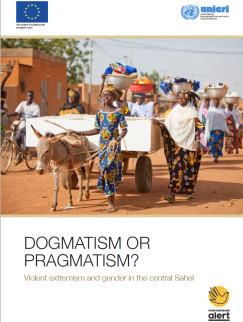This report examines how expectations of gender roles contribute to the involvement of men and women in supporting violent extremism in the Sahel. It explores the link between gender relations and violent extremism there. The research is based on empirical data collected in late 2019 within communities in the Liptako-Gourma region that are particularly exposed to the activities of violent extremist groups. It finds that across the Sahel civilian men are the main targets of violent extremist groups, with women often becoming indirect victims. The paper demonstrates how expectations associated with gender roles contribute to the involvement of men and women in supporting violent extremism in the Sahel, and it examines the specific role of women in this context. For example, the gender ideology of extremist groups in rural Liptako-Gourma presents gender segregation and women’s isolation as a privilege reflecting local historical traditions among the wealthy. The violent extremist groups also support consensual marriage practices, prioritizing piety over ethnicity, class, social status, or family preferences, as the basis for choosing partners. The report also highlights how sexual and gender based violence, including domestic violence, is linked to militarized and violent extremist masculinities. Two significant and novel recommendations emerge: they call on governments to stop minimizing violence against women, to condemn and prosecute military and state personnel who commit SGBV, and to work to end child and forced marriages; and second, they recommend that PCVE programs be also designed for rural contexts rather than unreflectively apply programs from urban areas.
2020
